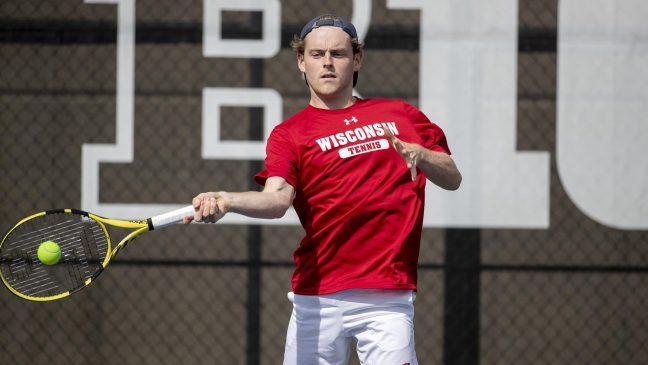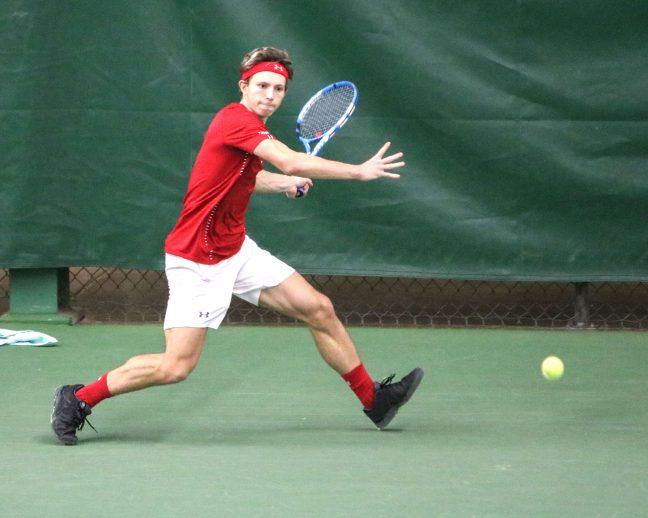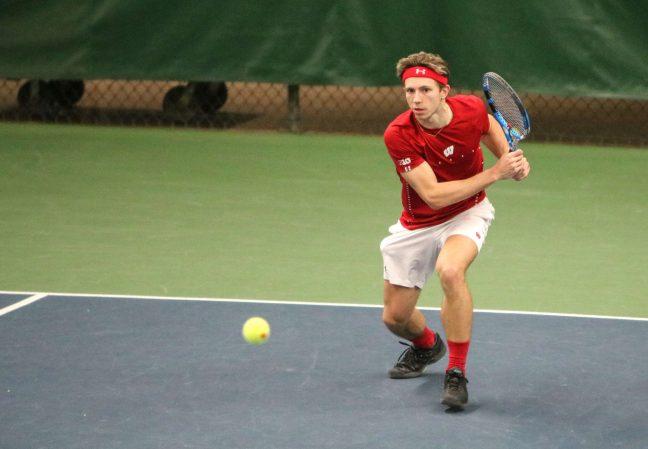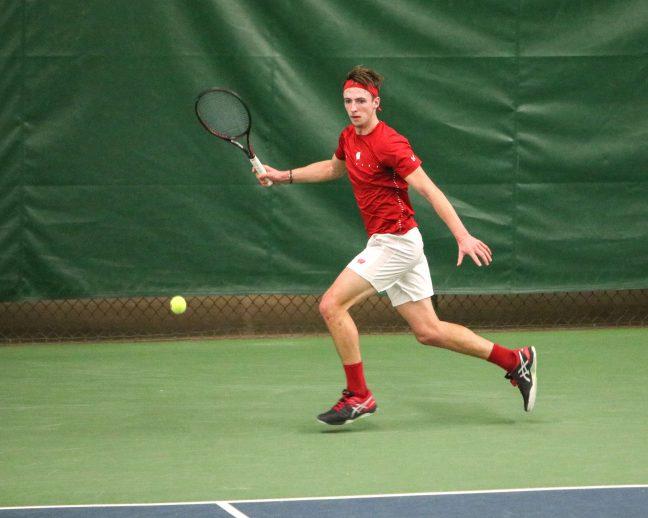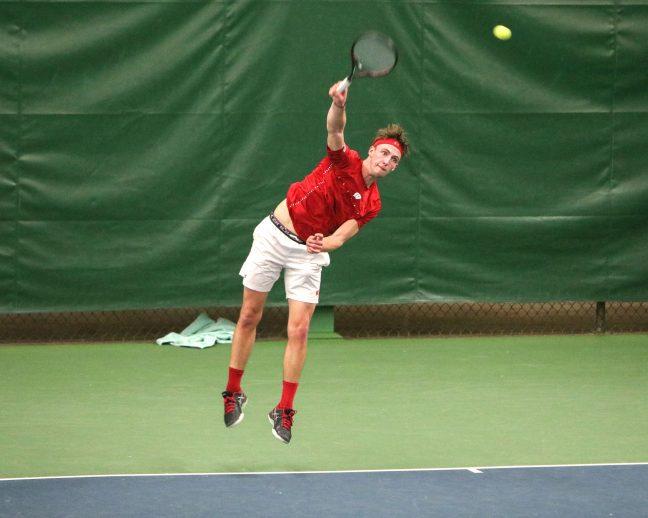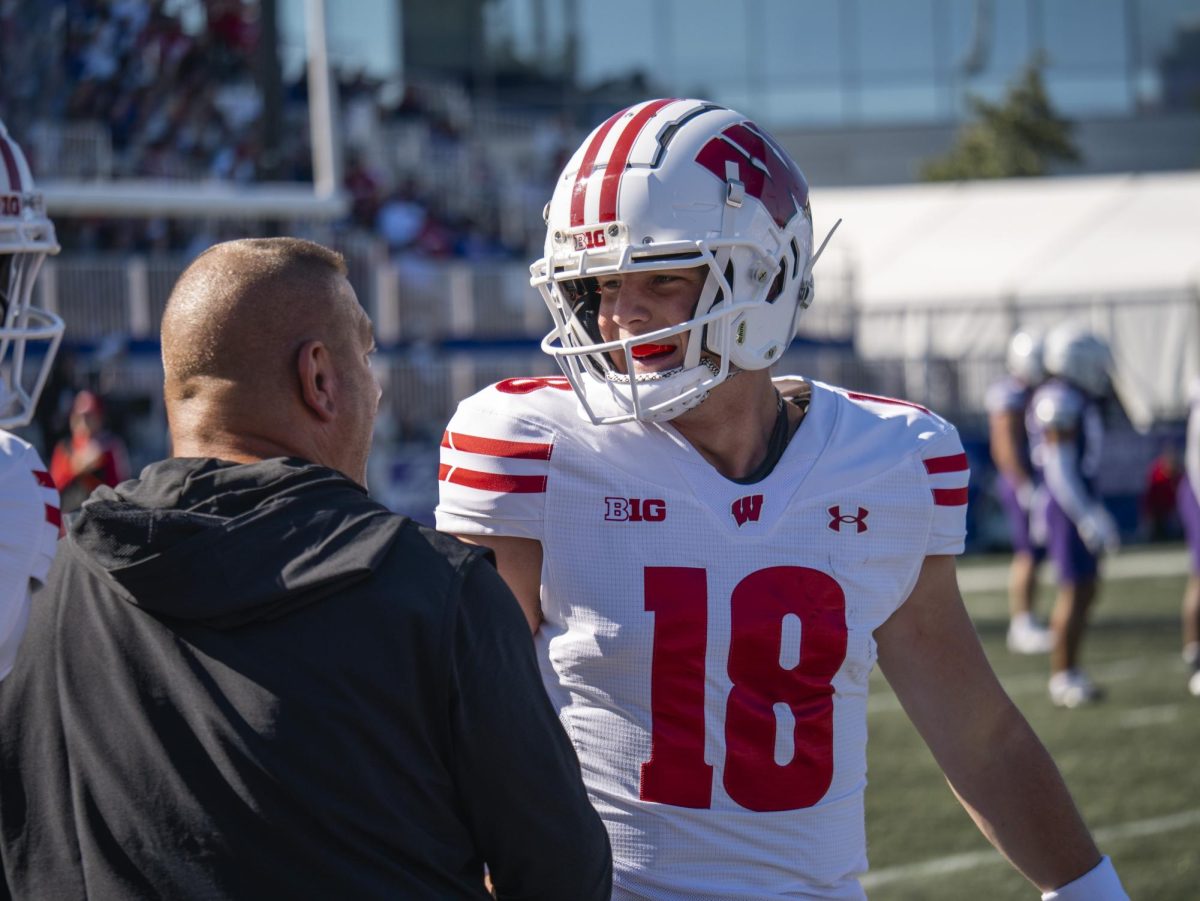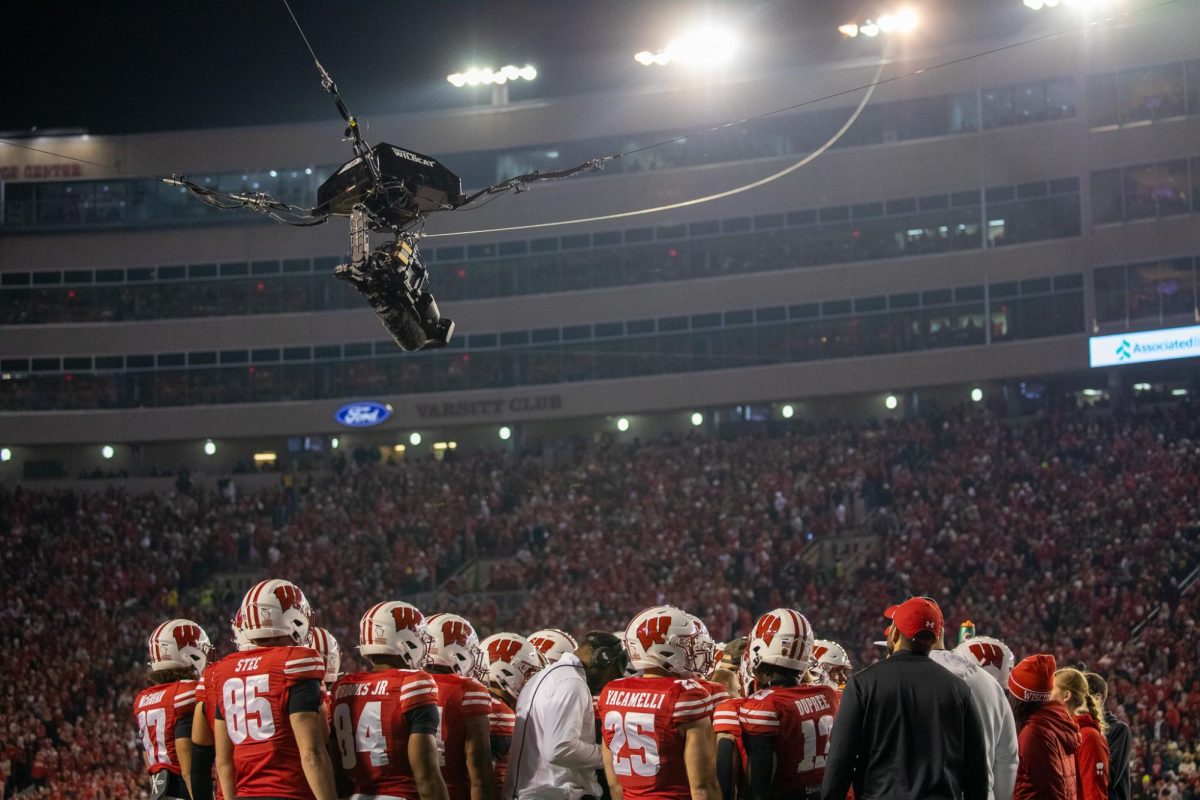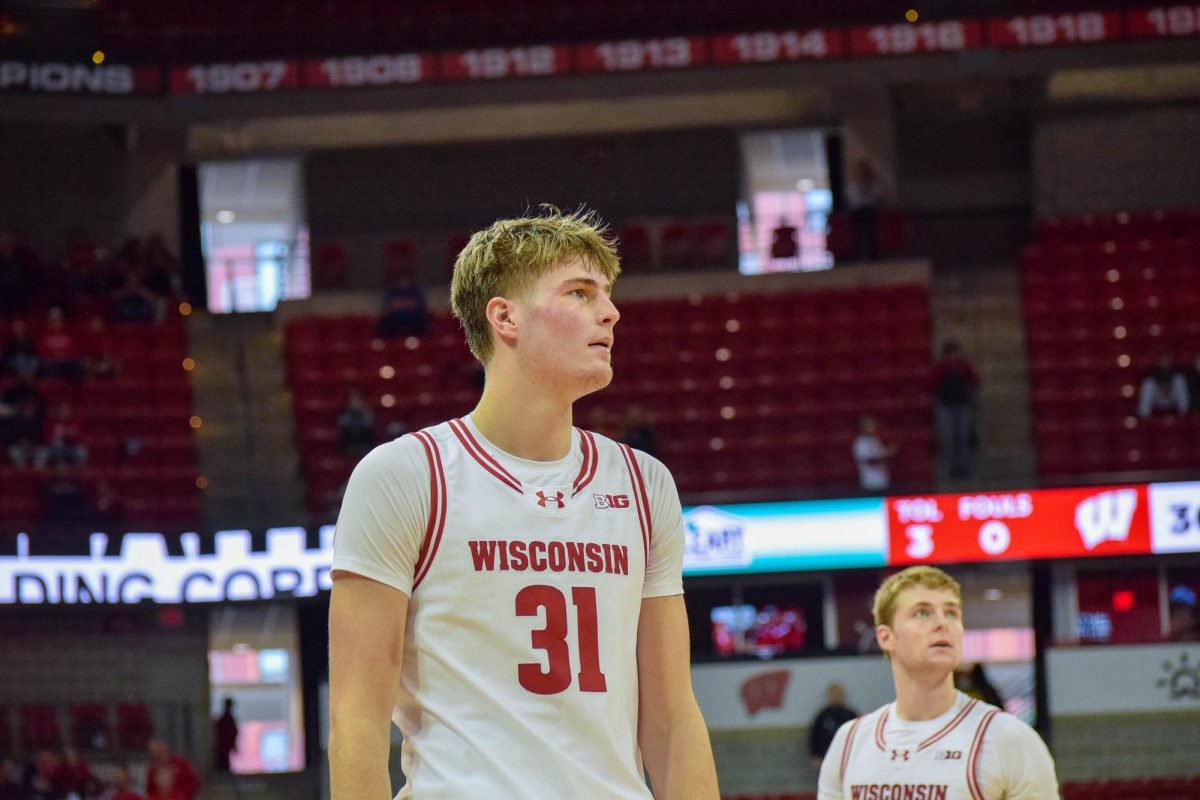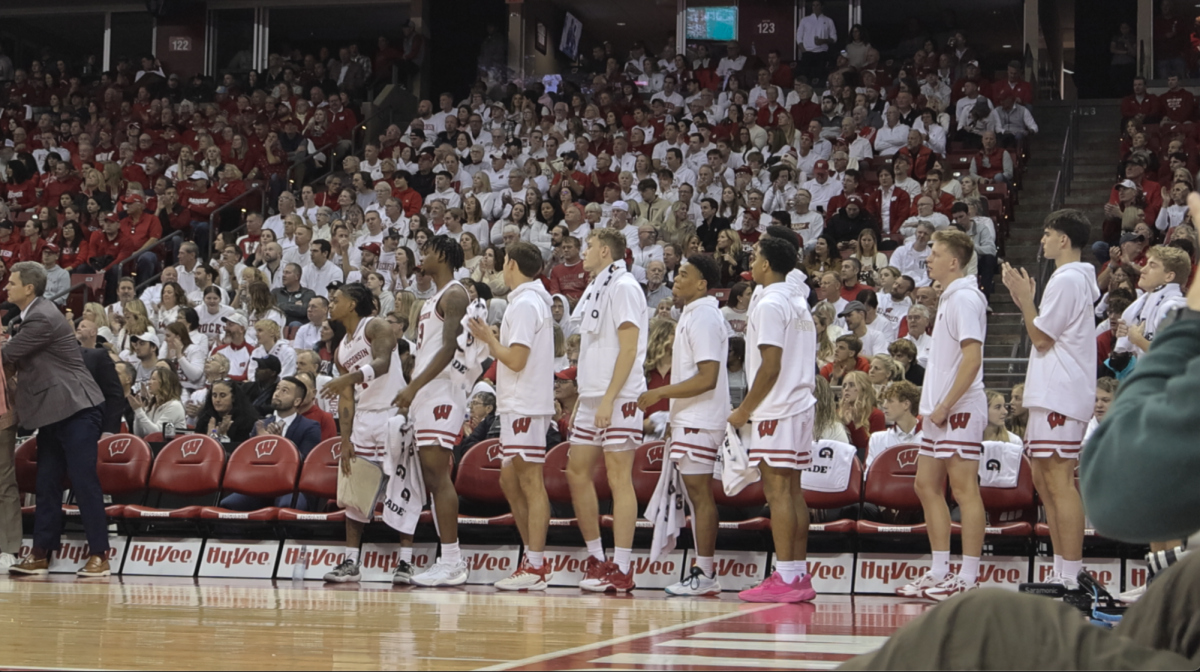As the Wisconsin men’s tennis team stumbled into its final five matches of the regular season, it seemed as though there was little hope for the bottom-feeder of the Big Ten to make a run at a conference championship.
However, after digging up a newly found sense of perseverance, the Badgers (12-11, 4-7) have propelled themselves squarely into the Big Ten conversation, winning four of their last five matches.
The first half of the conference schedule was expected to give Wisconsin the most challenging matchups, interspersed with a variety of formidable teams, including Ohio State, Michigan and Illinois, which are all currently ranked in the top 25 nationally.
With six straight losses to begin conference play, the Badgers had a slim chance to make an impact in the regular season. However, head coach Greg Van Emburgh thinks that the team is peaking at the right time.
“I think that we’re playing better tennis overall,” Van Emburgh said. “I think our lineup has really kind of worked itself out. I think we’re strong down low, and I think we’re real hot and dangerous up top.”
Although the head coach had hoped the team’s success would have come earlier in the season, he is nevertheless pleased with its recent victories.
Junior captain Billy Bertha knew after a 1-6 beatdown at Northwestern and in the midst of being blown out in five straight matches Wisconsin had to rethink its strategy moving forward in Big Ten play.
“I think after the Northwestern match at one point, it was pretty bad conditions out there and we lost,” Bertha said. “We lost a close doubles point and got it handed to us in singles. … We realized we were a better team than that and kind of went on a roll from there.”
The play of Bertha has been a key reason for Wisconsin’s success as of late. The Whitefish Bay, Wis., native has won four straight matches at No. 6 singles since a back injury forced him out of the lineup.
Before a tough conference schedule even started, Wisconsin was thrown into a storm of talented opponents on the road. The Badgers faced three teams nationally positioned in the top 30, winning a total of only three overall points during that stretch.
Although the young Wisconsin squad faced difficult obstacles early in the season, Bertha thinks the challenge helped the team against tough Big Ten competitors.
“I think we are a different team [now] than we were then,” Bertha said. “Right now we’re playing a lot better, and all the guys were pretty young then too, so it took them a couple of matches to get used to college tennis.
“I think after a bunch of guys got some wins down and some confidence we’re all playing pretty well, so it helped us in the long run.”
As a team that carries only two juniors on the roster and lacks any senior leadership, Wisconsin developed at a slower pace throughout the course of the season, partially because of the team’s youth. The standard singles lineup contains both juniors but also three sophomores and a freshman.
Van Emburgh considers the team to still be in the rebuilding process after making an appearance in the Round of Sixteen of the NCAA tournament two seasons ago with a squad that boasted three seniors.
He admits that the lack of experience was a disadvantage for Wisconsin, a drawback that could help the Badgers in seasons to come as players continue to develop.
“I just think we’re young and inexperienced and obviously if you do have a couple of seniors on the team, you’re going to get some more experience and guys who have kind of been through it and some more leadership,” Van Emburgh said. “It definitely hurt us a little bit.”
In the last regular season match at Nebraska, the victories by both upperclassmen drove the team to a 4-3 victory. Coincidentally, the Badgers are matched up with the latest addition to the Big Ten in the first round of the conference tournament this Thursday.
Junior Alexander Kostanov, initially in a one-set hole, sealed the win as he pulled out a taxing three-set victory when the overall score was knotted at three apiece.
Kostanov was all smiles as he relished the moment, knowing his match determined his team’s overall result.
“The guy I played was a freshman, and I am [a] junior so I had some mental advantages,” Kostanov said. “That’s why I turned it around. … It’s a great feeling.”
Although Wisconsin surrendered all three doubles matches to lose the opening mark, four singles victories were just enough to put Nebraska away in the first conference meeting between the two programs.
Just as the Badgers celebrated a strong finish to its season, they must quickly regroup and hit the road to face the Cornhuskers a second time, but this time around the stakes are higher. The winner of the match will challenge top-seeded Ohio State in the Big Ten tournament quarterfinals.
Van Emburgh understands that playing the same team in consecutive matches can present opposing perspectives.
“You can look at is at an advantage because we beat them, but then also you can look at it as a disadvantage because now they really know what to expect,” Van Emburgh said. “I think either way it’s going to be a real close match; they’re a good team, and I don’t think they’ve achieved as high as they could have played this year.”


